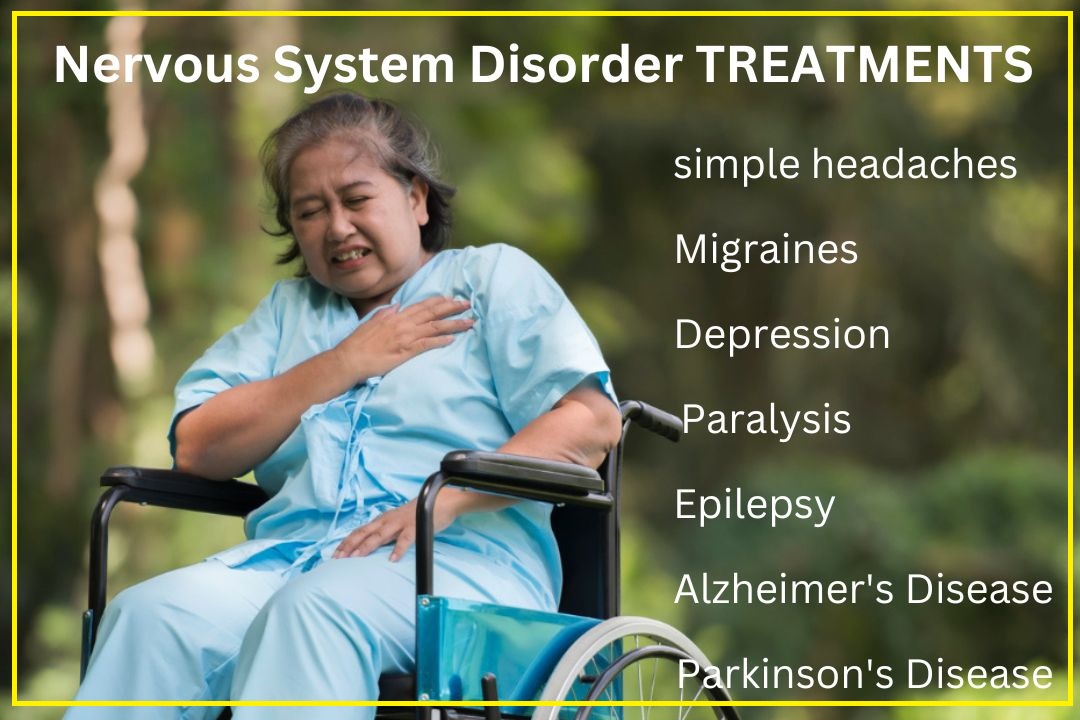Nervous System disorders The Ayurveda Way
The nervous system is a network of cells called neurons that transmit signals to various body parts. It regulates interactions between the external world and internal systems, coordinating the relationships among the trillions of cells in our bodies. According to Ayurveda, the primary dosha that controls the nervous system is the vatha dosha.
However, vatha is considered essential to the nervous system. Vatha dosha represents movement, the same as prana vayu. It is one of the five vathas in the head, governing reasoning, learning, creativity, information reception, signal interpretation and reaction, and awareness.
Symptoms:
- Frequent or sudden headaches
- Changed or different headache
- Loss of feeling or tingling
- Back pain that radiates to the feet, toes, or other parts of the body
- Blindness or double vision
- Muscle weakness or loss of strength
Causes:
- Medicine side effects
- Excess consumption of alcohol
- Hormonal imbalance
- Weak immunity
- Head injury
- Vascular problems
Diseases treated for nervous system disorder, Respiratory disorder
Nervous System Disorder
Nervous disorders can cause problems ranging:
- From simple headaches to severe problems such as strokes
- Depression
- Epilepsy
- Alzheimer’s Disease (AD)
- Parkinson’s Disease
- Migraines
Nerve problems can also cause low back pain and motor neuron disease. These problems can affect the quality of life and cause suffering for patients. Nervous disorders require holistic treatments that address the problem at its root.
Vata Dosha is primarily responsible for the functions of the nervous system. Vata represents movement. This Dosha imbalance can lead to neurological problems. Anxiety, stress and depression are common neurological problems, get the best treatment for depression at Pathyam. Improper diet and external environmental factors can cause Doshas to be out of balance. This leads to the formation of toxins in the body. These toxins can lead to various neurological diseases and problems.
Ayurveda can cure many nervous diseases such as migraine (ayurvedic medicine for migraine), sinusitis, Parkinson’s disease, anxiety, stress, insomnia, epilepsy, hysteria, cerebral palsy, etc. These neurological disorders are treated with five rounds of therapy, focusing on long-term holistic healing with long-lasting results.

- Pomegranate leaves and rose petals are concentrated in boiling water and dropped into ghee to cure madness.
- Apply clove-soaked water to the earlobe to treat migraine.
- Almonds may improve memory, especially when taken at a young age.
- Guava leaf decoction is used to treat psychosomatic diseases.
- Poppy is good for insomnia, confusion, convulsions, etc.
Our expert panel of Ayurveda Doctors are highly qualified in treatment for depression, paralysis treatment,

- Kalmegh’s roots and leaves are effective. Its anti-inflammatory, antibacterial, antioxidant, antiviral, and immunostimulatory properties are beneficial for maintaining lung health.
- This Ayurvedic combination of Amalaki, haritaki and bibhitaki helps balance energy in the throat area. Triphala helps you breathe easier and is one of the best ways to cleanse your lungs. It can be consumed regularly to strengthen your respiratory and immune systems.
- Mulethi is known for its antibacterial and antiviral properties, and its roots help soften and cleanse the mucous membranes of the lungs and throat. It also contains saponins that help melt mucus so it can be easily expelled from the lungs. You can chew a mulethi twig or drink it as a tea to relieve chronic cough, sore throats, and other respiratory problems.
Our expert panel of Ayurveda Doctors are highly qualified in treatment for chronic cough, asthma treatment.
Respiratory diseases the Ayurveda way:
Respiratory diseases, afflict everyone again and again throughout our lives. Whether it’s a cough associated with the common cold or respiratory distress related to allergies and asthma, dyspnea is a constant source of irritation for patients.
According to Ayurveda, respiratory can be divided into several categories: Kasa (cough), Shwasa (dyspnea), Peenasa (sinusitis), and Pratishyaya (rhinitis).
Respiratory System:
Symptoms of respiratory problems can change over time and vary in severity from person to person. If not properly diagnosed and treated, these problems often lead to hospitalization, reduced physical activity, insomnia and even death.
According to Ayurveda, excessive vata build-up in the lungs can lead to breathing difficulties, asthma, dry cough, hoarseness, pain when breathing, and allergies associated with breathing or wheezing. If the pitta in your lungs is out of balance, you may experience bronchitis, infection, or inflammation. Too much Kapha in the lungs, on the other hand, can lead to mucus congestion, a wet cough, hay fever, pneumonia, or swollen glands.
Some ayurvedic home remedies and asthma treatment for treating respiratory diseases are as follows:



